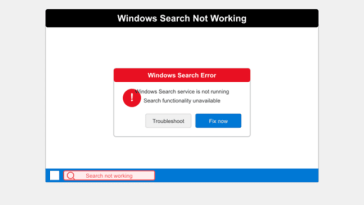Handbooks are a great way to compile company policies, instructions, guidelines, and other reference materials into a single, usable resource. Microsoft Word has all the features needed to design and develop a professional handbook. In this tutorial, I’ll walk through the steps to make an effective handbook in Word.
What is a Handbook?
A handbook provides information and guidance in a concise, organized way.
– Handbooks are commonly used for employee onboarding, training, and reference.
– Student and club handbooks outline rules, resources, and procedures.
– Handbooks help codify and communicate policies, standards, and best practices.
Creating a handbook in Word offers advantages over print:
– Easy organization with a clickable table of contents
– Inclusion of images, charts, icons, and other graphics
– Hyperlinked cross-references between sections
– Ability to print and share digitally
Step-by-Step Handbook Creation
Follow these key steps to make a handbook in Word:
1. Plan the Content
– Identify the purpose of the handbook and intended audience. This guides the content.
– Decide on sections and topics to cover based on the audience’s needs.
– Organize the content into a logical flow before writing.
2. Set up the Structure
– Create a table of contents (TOC) listing all sections and pages.
– Use titles, headings and subheadings to divide content into clear sections.
– Format titles and headings consistently for visual organization.
3. Format the Layout
– Select fonts and font sizes that are easy to read.
– Use page borders, background colors or images for visual interest.
– Include page numbers, footers, and headers using Word tools.
– Insert relevant charts, graphs, illustrations, and icons.
4. Write the Content
– Focus on clear, concise writing that’s easy to follow.
– Use bullet points, numbered lists, tables, and diagrams for clarity.
– Hyperlink between sections and to external sources for easy navigation.
5. Review and Edit
– Proofread thoroughly for spelling, grammar, formatting errors.
– Have stakeholders and end users review the handbook for feedback.
– Refine content and structure based on review feedback.
6. Create PDF Version
– Use Word’s export function to convert the finished handbook to a PDF file.
– Make both a Word and PDF version available for accessibility.
Following these steps will produce a polished, professional handbook that provides immense value to your audience. Update periodically as information changes.
Handbook Design Tips
– Use consistent formatting like fonts, colors, and text styles.
– Allow white space between elements for visual clarity.
– Mix text formatting with graphics, icons and images.
– Collaborate with stakeholders to represent all perspectives.
Now you have the knowledge to create an engaging, easy-to-use handbook in Word! Let me know if you have any other questions.






